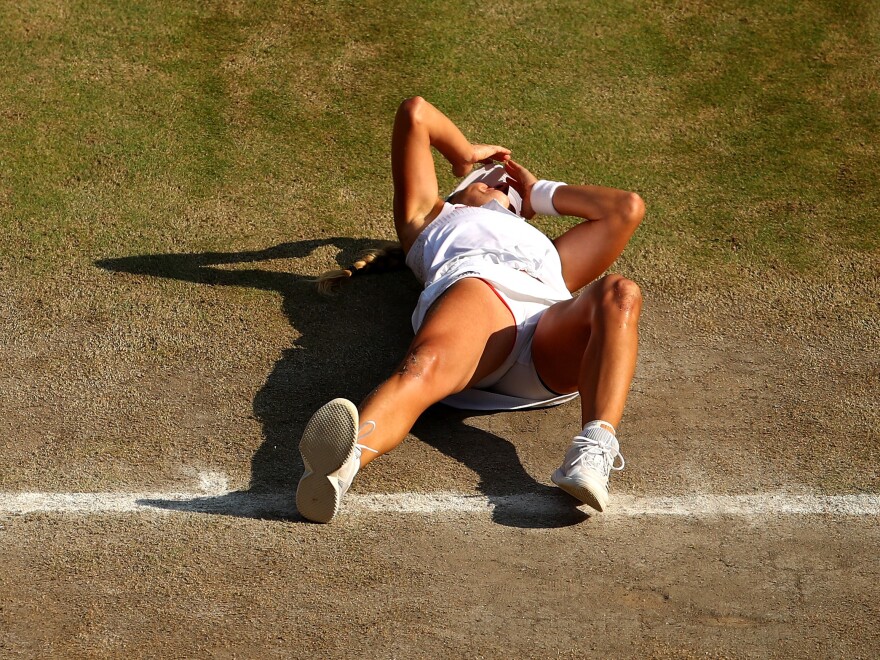Angelique Kerber has won the Wimbledon women's singles title, beating Serena Williams 6-3, 6-3 in the final. She is the first German to win a Wimbledon singles title since Steffi Graf did so in 1996.
"This is one of the best moments of my career," Kerber told ESPN, saying that it has been her dream since childhood to win Wimbledon. She added that playing against Williams made the moment all the more significant: "Playing against Serena is always an honor for me."
Williams was seeking her 24th Grand Slam title, which would have tied her with Margaret Court for the most major titles in history, in only her fourth tournament back since she gave birth 10 months ago.
"It was such an amazing tournament for me," an emotional but smiling Williams said after the match. "I was really happy to get this far. It's obviously disappointing, but I can't be disappointed. I have so much to look forward to. I'm literally just getting started."
"To all the moms out there, I was playing for you today," Williams said to cheers from the crowd.
It was a harrowing road to get this far after a difficult delivery, as NPR's Tom Goldman reported ahead of the match:
"Williams won the first major tournament of 2017, the Australian Open, when she was pregnant. She took off the rest of the 2017 season, and in September, delivered her baby, Olympia, via C-section.
"And then 'everything went bad,' Williams said in a January 2018 Vogueinterview. She developed blood clots in her lungs, went through multiple surgeries and was bedridden for a month and a half.
"She recovered, started to reclaim her fitness and her game, and in March of this year, announced her comeback to competitive tennis.
"Not surprisingly, it was a hard beginning. She lost to sister Venus in her first tournament back; in the second, the Miami Open, Williams lost in the first round."
But at Wimbledon, Williams seemed unstoppable: After winning six matches in a row, she was favored to win the singles title — which would have been her eighth.
On Saturday though, things seemed different: Williams made a number of errors, and commentators called her playing "awkward," saying she looked "tense."
The women's final started late on Saturday because of a protracted match on Friday between Kevin Anderson and John Isner. As NPR's Colin Dwyer reported, the match took "a flabbergasting six hours and 36 minutes from first serve to the moment Anderson clinched the match" and delayed the whole Saturday schedule.
As Howard Bryant, senior writer for ESPN, told NPR's Renee Montagne on Saturday, it's possible this delay was to blame for Williams' less-than-perfect performance.
"Maybe that was a factor," Bryant said. "But give Angelique Kerber all the credit in the world."
"I know the audience — I know everyone — wanted the narrative of Serena Williams, the great Cinderella story of coming back," Bryant said. "But Angelique Kerber is the champion and it's well-deserved."
Kerber seemed to know that many in the audience had been rooting for Williams. She addressed her during her post-match interview, turning back to face her opponent across the court:
"First I have to say, Serena, you're a great, great person, and the champion, I mean, you are coming back, you're such an inspiration for everybody, all of us, all the people watching you. I mean, really. That's amazing. And I'm sure you will have your next Grand Slam title soon. I'm really, really sure."
Copyright 2020 NPR. To see more, visit https://www.npr.org.


